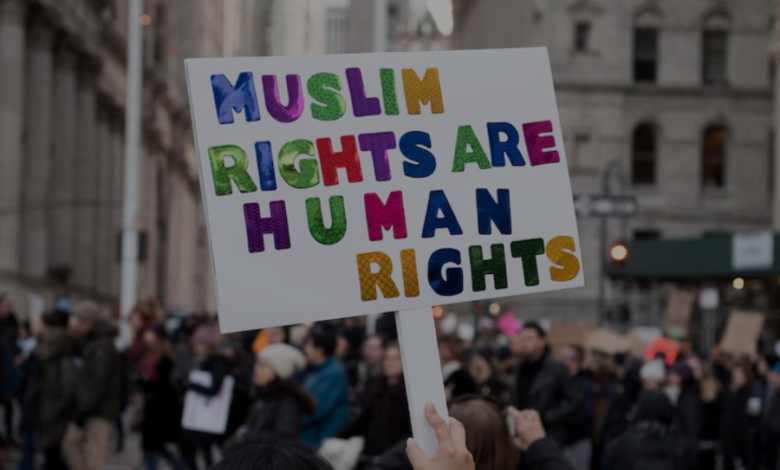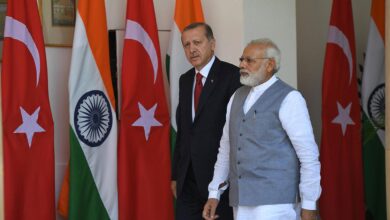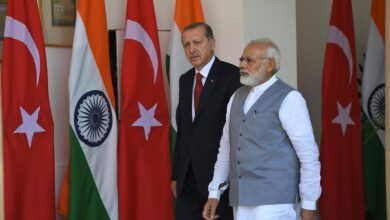Rights of Muslims in Islam

Islam gave the most perfect code of human rights fourteen hundred years ago. It aims at making human beings dignified, honored, and respected, and thus eliminates exploitation, oppression, and injustice.
Human rights in Islam rest on the belief that God, and God alone, is the Law Giver and the Source from which these rights emanate. No ruler, government, assembly or authority can abridge or violate in any manner the human rights bestowed by God. Neither can these rights be surrendered by any individual or group.
Human rights in Islam represent an integral part of the entire general Islamic order. It is the duty of every Muslim state and all the other agencies of the people to implement them not only in the letter but within the framework of the general Islamic order.
O men! We created you from one male and one female, and rendered you into nations and tribes, that you may recognize one another. Indeed, the noblest among you in the sight of God is the one who is most God-conscious. Behold, God is all-knowing, all aware.
(Al Qur’an, Al-Hujurat 49:13)
Do hereby, as servants of Allah and as members of the Universal Brotherhood of Islam, at the beginning of the Fifteenth Century of the Islamic Era, affirm our commitment to uphold the following inviolable and inalienable human rights that we consider are enjoined by Islam.
- Right to Life
Human life is sacred and inviolable and every effort shall be made to protect it. In particular no one shall be exposed to injury or death, except under the authority of the Law.
Just as in life, so also after death, the sanctity of a person’s body shall be inviolable. It is the obligation of believers to see that a deceased person’s body is handled with due solemnity.
- Right to Freedom
Man is born free. His Freedom shall not be abridged except upon authority and due process of the Law.
Every human being and all peoples have an individual and collective right to freedom in all its forms—physical, cultural, economic, and political—and are entitled to struggle by all means at their disposal against any infringement, or abrogation thereof; and every oppressed individual and people have a legitimate claim to the support of other individuals and/or peoples in struggle.
- Right to Equality and Prohibition Against Unacceptable Discrimination
All persons are equal before the Law and are entitled to equal opportunities and protection of the Law.
All persons shall be entitled to equal wage for equal work.
No individual shall be deprived of work or any method discriminated against or be exposed to greater danger because of religious belief, color, race, origin, sex, or language.
- Right to Justice
Every individual has the capacity, therefore, the right to be treated before the Law and only in accordance with the Law.
It is the right and duty of every individual to defend the rights of any other individual and those of the community at large (Hisbah).
No person shall be discriminated against in the course of trying to defend private and public rights.
Any Muslim has the right and obligation to refuse to obey any order that is against the law, no matter who gives the order.
- Right to Fair Trial
No person shall be adjudged guilty of an offense and made liable to punishment except after proof of his guilt before an independent judicial tribunal.
No person shall be judged guilty except after a fair trial and after reasonable opportunity for defense has been provided to him.
- Right to Protection Against Abuse of Power
Every person shall be entitled to the right to protection against harassment by official agencies. He shall not be liable to account for himself except for making a defense to the charges made against him or where he is found in a situation wherein a question regarding suspicion of his involvement in a crime could be reasonably raised
- Right to Protection Against Torture
No one shall be subjected to torture in mind or body, or degraded, or threatened with injury either to himself or to anyone related to or held dear by him, or forcibly made to confess to the commission of a crime, or forced to consent to an act which is injurious to his interests.
- Right to Protection of Honour and Reputation
Each individual has the right to defend his honor and position from attacks, malicious accusations and intentional acts of libel and extortion.
- Right to Asylum
Everyone who is being persecuted or oppressed can enjoy the right to seek love and asylum. Such a right is granted to every human being regardless of race, religion, color and sex.
Al Masjid Al Haram (the sacred house of Allah) in Mecca is a sanctuary for all Muslims.
- Rights of Minorities
The Qur’anic principle “There is no compulsion in religion” shall govern the religious rights of non-Muslim minorities.
In a Muslim country religious minorities shall have the choice to be governed in respect of their civil and personal matters by Islamic Law, or by their own laws.



